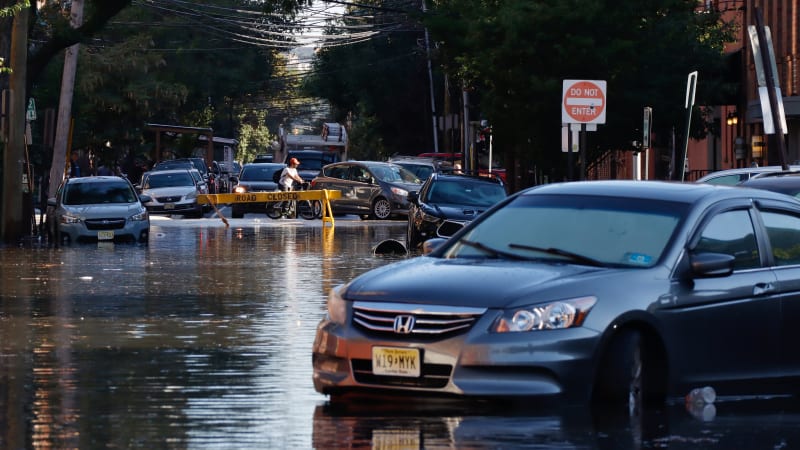With severe storms affecting much of the country throughout the year so far, 2024 is shaping up to be another big year for flooding. Naturally, thoughts immediately turn to minimizing the potential loss of life. But there are other (admittedly less important) issues that arise from such heavy rains, massive storms and flooding. Natural disasters can have serious repercussions for the used-car market, potentially decimating inventory and lowering the overall quality of available options while simultaneously driving up list prices.
All of this is bad enough; getting stuck with a flood-damaged car that was surreptitiously shuffled into a dealer’s inventory (or “fixed” off the books for resale by a private seller) is the last thing anybody should have to worry about when shopping for transportation.
All too often, we’re reminded that flood-damaged cars can have serious engine, mechanical, and body issues. Electronics, which are everywhere on modern cars, are particularly vulnerable. Even if a car looks or performs well now, that might not be the case in a year or two when corrosion sets in. Unfortunately, flood damaged vehicles do show up in the used car market. As with any used car, a pre-purchase inspection from a trusted mechanic is highly recommended. But before taking it to a mechanic, save yourself time, money, and potential heartache, by using these 11 tips to help you spot — and avoid — a flood-damaged automobile.
1. Find out where it came from
Out-of-state cars are often transported away from flood zones to areas where there is less awareness of the issue — pretty sneaky! Visit Carfax for a free flood damage check, based on the previous state of registration.
2. Check government databases
Check the vehicle’s history with the National Motor Vehicle Title Information System, or the National Insurance Crime Bureau’s VIN Check service. A clean background isn’t proof a car hasn’t been flooded, but a bad background means you should just walk away.
3. Trust your nose
If you suspect water damage, start with a “sniff test” — does it smell like must, mold or mildew? What about heavy deodorant trying to cover up one of those smells? All are red flags.
4. Examine the fabrics
Check the carpets, upholstery, and spare-tire well. Are they musty, stained, or show signs they’ve been mud-caked? Or, do they look like brand-new replacements?
5. Look under the seats
Since seats are often removed when drying out a water-damaged car, they can reveal a lot. Look for seat bolts that show damage from being wrenched, and for rusty springs.
6. Open the hood
Water damage is often revealed by lifting the hood. Murky crankcase oil, stained paper air filters, debris where it shouldn’t be or a water line on the firewall or inner fenders are all possible signs.
7. Check all of the lights
Headlights and taillights next: Is there evidence of a past water line inside? Are they foggy? Water inside a head or taillight isn’t necessarily a sign of flooding. Sometimes they leak or get condensation inside, especially in environments prone to dramatic temperature swings.
8. Explore the nooks and crannies
Examine corners under the hood, the dashboard, in the trunk, or inside body panels. Run your finger over hard-to-reach (and therefore hard-to-clean) places. Any evidence of mud or silt?
9. Inspect the nuts and bolts
Rusty screw heads and bolts under the dashboard or in other hidden places could be signs of damage. Lift the carpet if possible.
10. Put it on a lift
Check out the undercarriage! Have the rubber drain plugs on the underside of the car been removed? Are there signs of debris in places it would likely only reach because it floated there?
11. Test drive it
Finally, take it out for a test drive to see how it runs! Remember to check all the electronics for signs of damage.
With a little preparation, you can avoid water damage and make the right decision.







